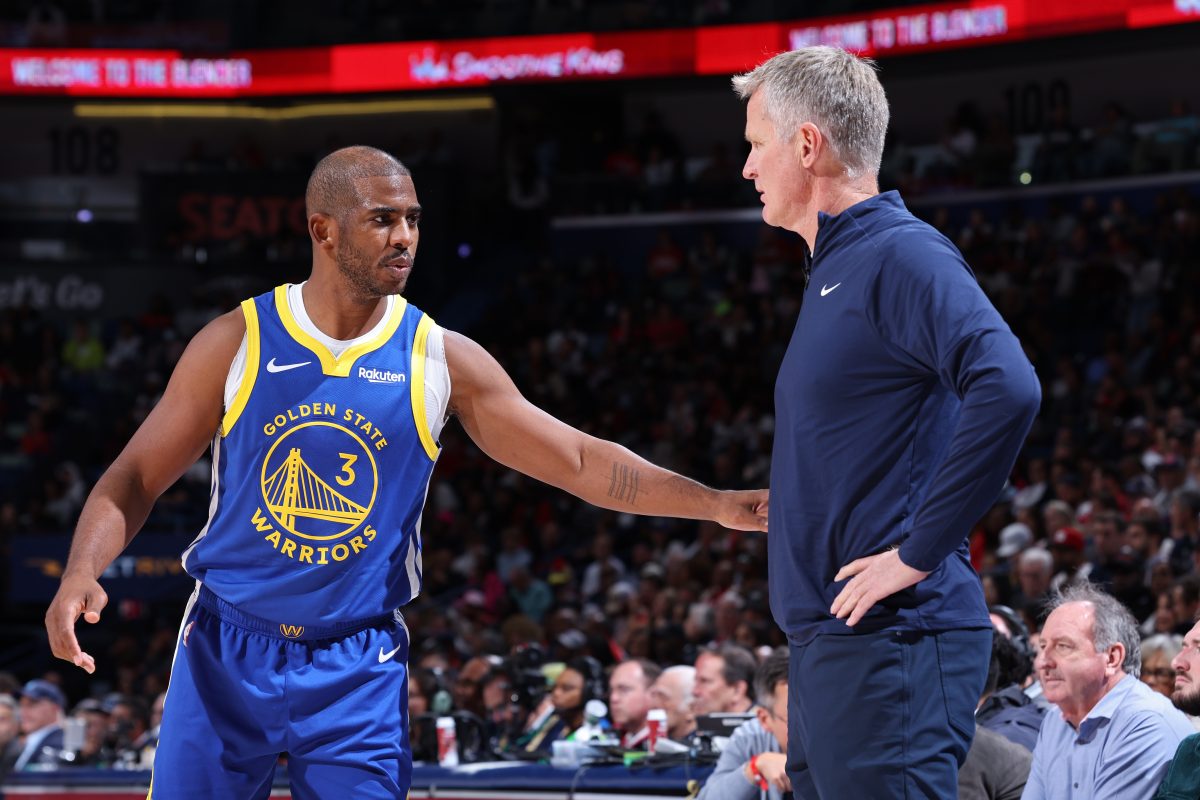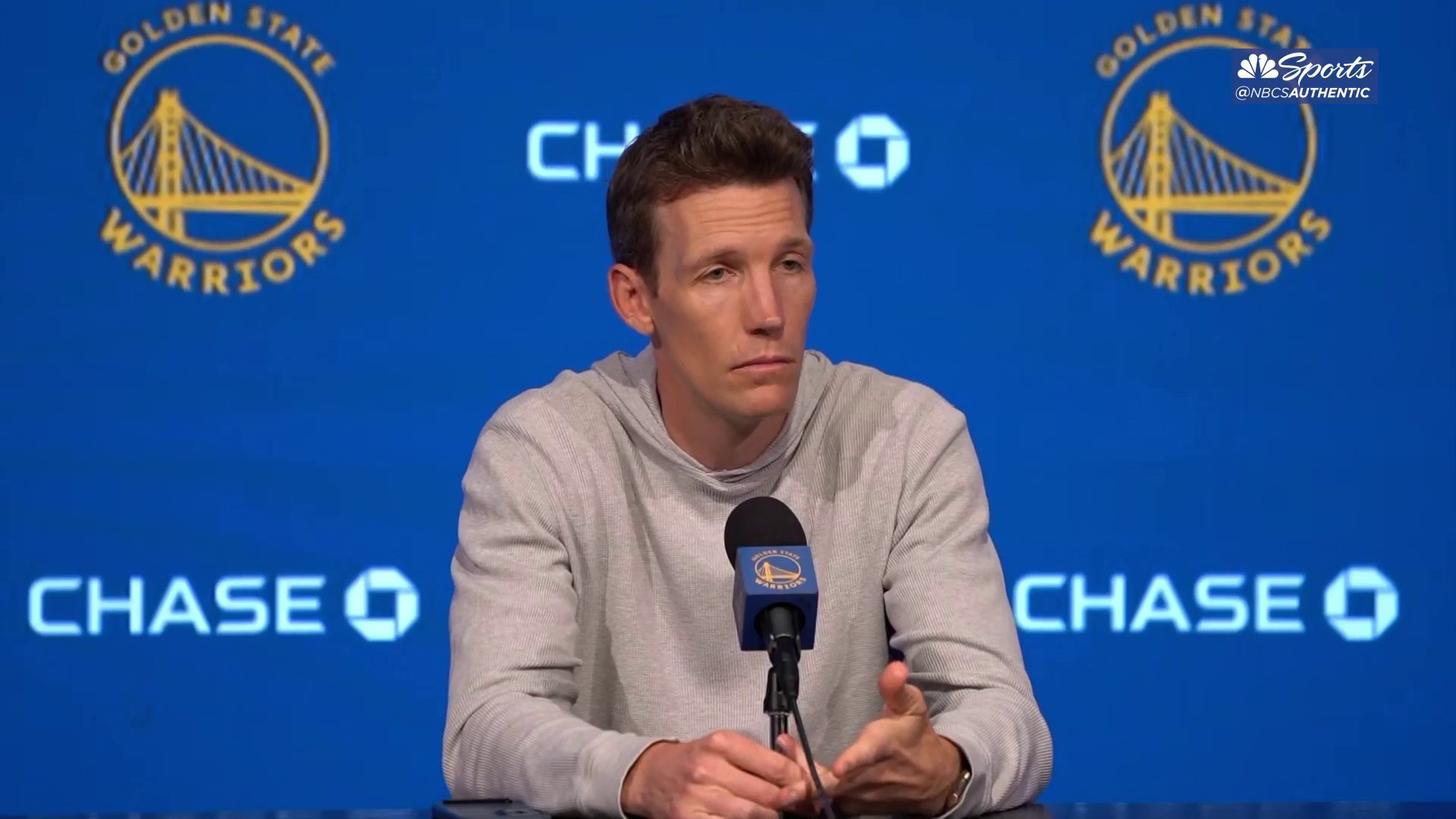
April 9,2011
EDITOR'S NOTE: Sign up for Breaking NewsAlerts and receive e-mail and text alerts when headlineshappen.CSNBayArea.com is your up-to-the-minute newssource.
SAN FRANCISCO (AP) -- Prosecutors were down to their last chance, and possibly losing the case.
Stay in the game with the latest updates on your beloved Bay Area and California sports teams! Sign up here for our All Access Daily newsletter.
Several apparent setbacks, culminating with the disastrous testimony of one of their main witnesses, had created a consensus that mostif not allof the Barry Bonds perjury case had slipped through the government's fingers after nearly three weeks of trial.
Then Assistant U.S. Attorney Matt Parrella took to the lectern Thursday to deliver the government's final word through his closing argument.
"There's a real irony to this case," Parrella said minutes before the judge turned the case over the jury for deliberations.
His simple pitch: Do you believe that a professional athlete of Bonds' caliber would gullibly take unknown creams and liquids supplied by a sometimes homeless gym rathis personal trainer Greg Anderson?
News
Bonds faces three charges of lying to a grand jury in 2003 by denying he knowingly took steroids and human growth hormone from Anderson and by saying no one other than his doctors injected him with anything. He also faces an obstruction of justice count.
The jury deliberated all day Friday and will start work again Monday.
If the panel of eight women and four men convict Bonds, legal analysts and courtroom observers said Parrella's closing argument could very well have secured the deal for the government.
"He did a good job of conveying to the jury the evidence it needed to consider," said Golden Gate University law professor Peter Keane. "He gave a very simply explanation."
Keane and others also said Parrella made big strides in containing the considerable damage Dr. Arthur Ting appeared to cause the government's case after prosecutors called him to the witness stand March 31.
Ting, Bonds' orthopedic surgeon, contradicted the key government testimony of Steve Hoskins, Bonds' former business partner and estranged childhood friend. Hoskins spent two days on the witness stand during the first week of the trial.
Hoskins testified that he and Ting had as many as 50 conversations about Bonds and steroids. Ting denied having any such conversations, including telling Hoskins that Bonds' 1999 elbow injury was caused by steroids. That testimony surprised prosecutors, who were derided for calling Ting to the witness stand. The momentum of the trial shifted dramatically in favor of Bonds.
"There's an old law school maxim that you never ask a question that you don't know the answer to," said Stanford University Law School professor William Gould. "I will forever remain perplexed by the calling of Dr. Ting. I don't understand what they were thinking."
Ting did testify that in 1999 he gave Hoskins five pages of a scientific article discussing the effects and dangers of steroids. The section titled "tendon injury" was highlighted in yellow and Hoskins said he showed the article to Bonds.
"Now Dr. Ting was called by the government, OK, and the reason he was called is because the government had nothing to hide," Parrella told the jury Thursday. "We had relevant evidence that we needed from him and we put him on. We weren't afraid to put him on. We have nothing to hide."
Parrella told the jury that prosecutors felt the scientific article was important evidence and that's why they called Ting, who has operated on numerous professional athletes, including former San Francisco 49ers quarterback Joe Montana.
Ting smiled at Bonds' mother and shook the hand of one of the slugger's entourage when he finished testifying.
Parrella speculated before the jury that Ting was "a celebrity doctor trying to soften the blow for a celebrity crime."
Legal observers said Parrella's closing argument helped swing the momentum back toward the government. They also said that Parrella kept his 51-minute closing argument simple and clear, and didn't try to talk around the government's obvious problems with less-than-sympathetic witnesses such as Bonds' former mistress.
"In conclusion," Parrella told the jury, "there's a real irony to this case and it's that these substances that the defendant took to make himself strong, he wasn't strong, he was weak. He went to the grand jury too weak to tell the truth despite all the anabolic steroids."


